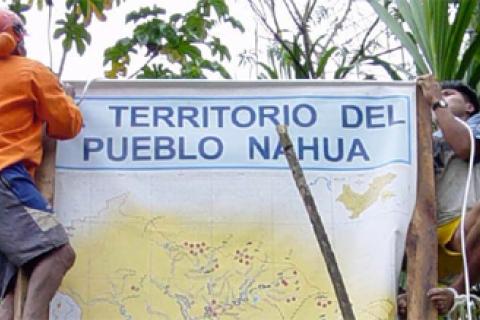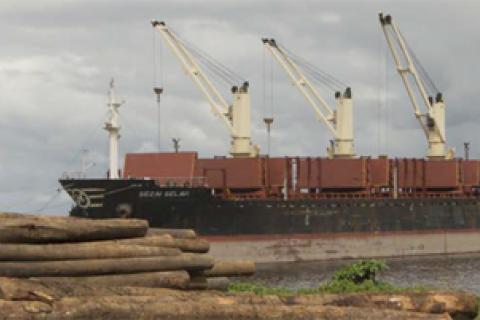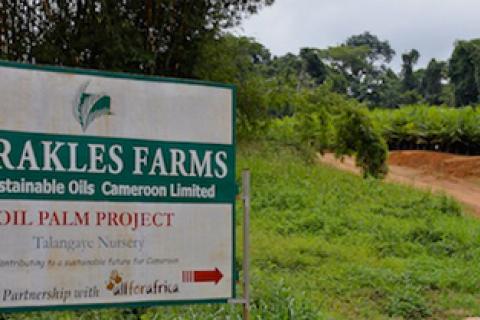The Peruvian Amazon, which covers more than 61% of the country’s territory, is the fourth largest area of tropical rainforest in the world. Thanks to this extensive forest cover, Peru also has an extremely high degree of biodiversity; for instance, it ranks in fifth place worldwide for plant diversity, with close to 25,000 recorded species.
Bulletin articles
Logging permits designed to promote small businesses and meet local needs are being allocated in their hundreds to industrial logging companies in Cameroon, the Democratic Republic of Congo (DRC), Ghana and Liberia.
Some 20,000 people participated in the 4th National March in Defence of the Land, Water and Life held on May 10, 2013 in Montevideo, Uruguay. The march was organized and promoted by some 40 organizations from around the country, in response to the growing concentration of ownership and foreign control of land in Uruguay, where 42% of arable land is currently under foreign ownership.
From May 26-June 1, the International Tree Biotechnology 2013 Conference took place in Asheville, NC. This conference is a gathering of genetically engineered tree proponents and scientists. The Campaign to STOP GE Trees together with Join Earth First! and Global Justice Ecology Project had called to Resist the Tree Biotechnology 2013 Conference and carried out a week of resistance to genetically engineered trees.
On May 2, some 200 indigenous peoples, riverine communities and fishermen joined in a historic moment of unity and struggle for the Amazon and its peoples at the Pimental construction site of the Belo Monte dam where they continue to occupy the area.
The Huaorani, the last known group of Indigenous peoples still living in voluntary isolation in Ecuador in the Amazonian area of Ecuador known as Yasuni National Park and Biosphere Reserve are threatened by encroaching oil development, settlers and illegal loggers.
In the continuum of brutal attacks on the struggle against forcible land acquisition for a POSCO steel plant in Odisha, India, the most recent case of repression has been the unlawful arrest of POSCO PratirodhSamgramSamiti (PPSS) leader AbhaySahoo from Bhubaneshwar airport by Odisha Police on 11th May.
Tens of thousands of indigenous people from Sarawak, Malaysia, are threatened with forced displacement as the Sarawak government moves ahead with plans for 12 massive new dams. These dams will devastate the traditional homelands of native communities, drown pristine tropical habitat, and generate dangerous methane gas, a dangerous climate polluter.
Communities and International Redmanglar member organizations expressed their solidarity with the people and community of Cumbe, Ceará, while expressing its total rejection to criminalize actions that the community lives by the particular interests of the employer Rubens Gomes dos Santos, who has tried every means to revive illegally abandoned shrimp farm.
Among many indigenous peoples, words are considered sacred, and must be used with care. But in today’s digitalized, high-speed, globalized world, words are not viewed this way. They are used carelessly, often without realizing the true meaning of what is being said or typed. And sometimes, often without meaning too, we end up inadvertedly reinforcing ideas, concepts and values implied by the words we use.
According to the dictionary, to “grab” is to seize suddenly or roughly, sometimes forcibly or unscrupulously. It carries a connotation of greed, of grasping what one wants with no concern for the welfare of others.



